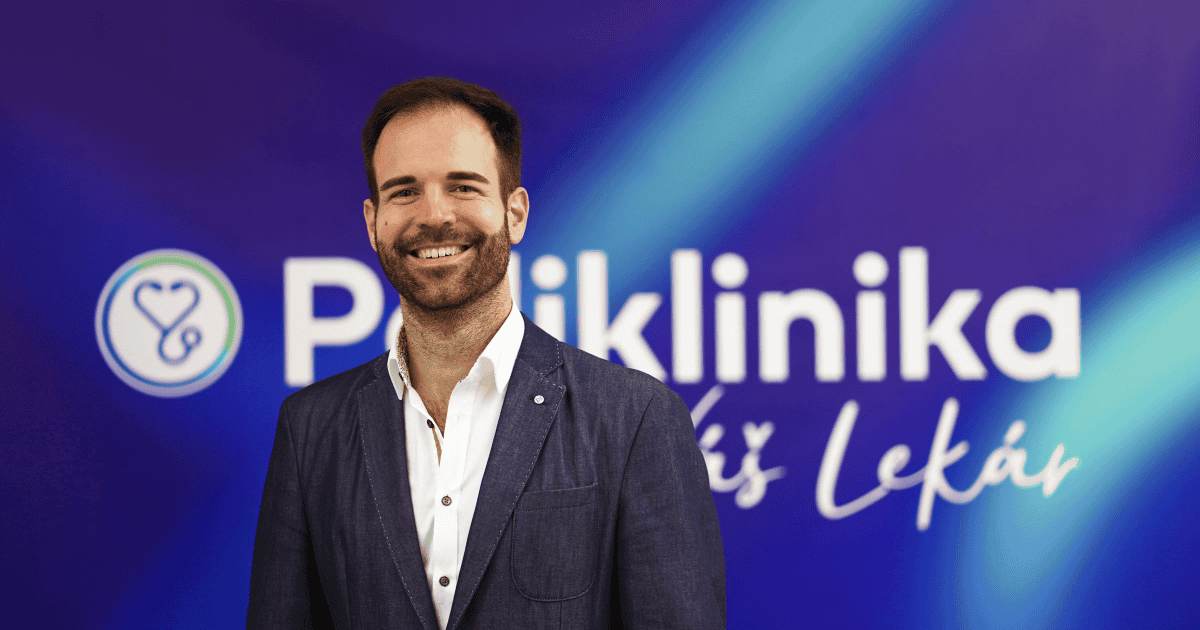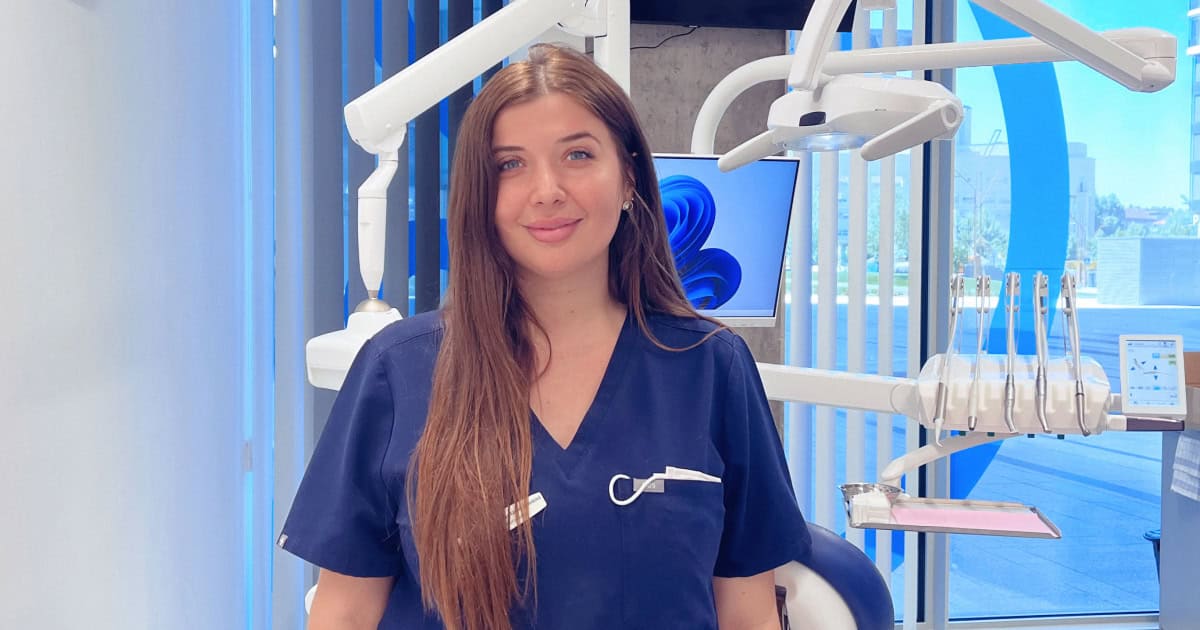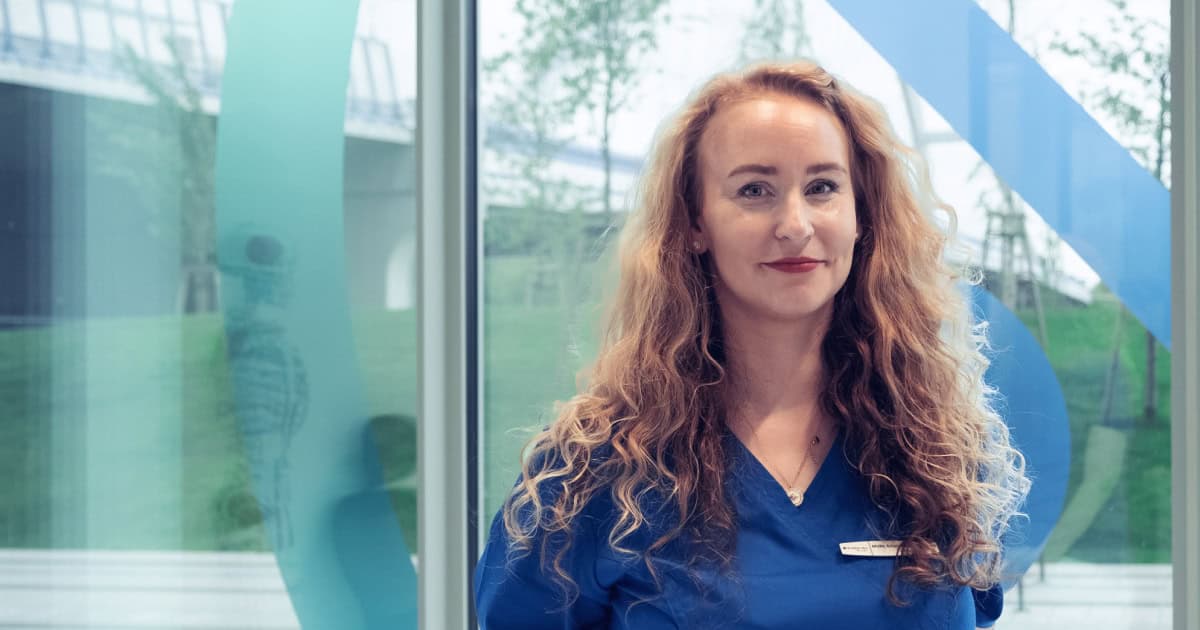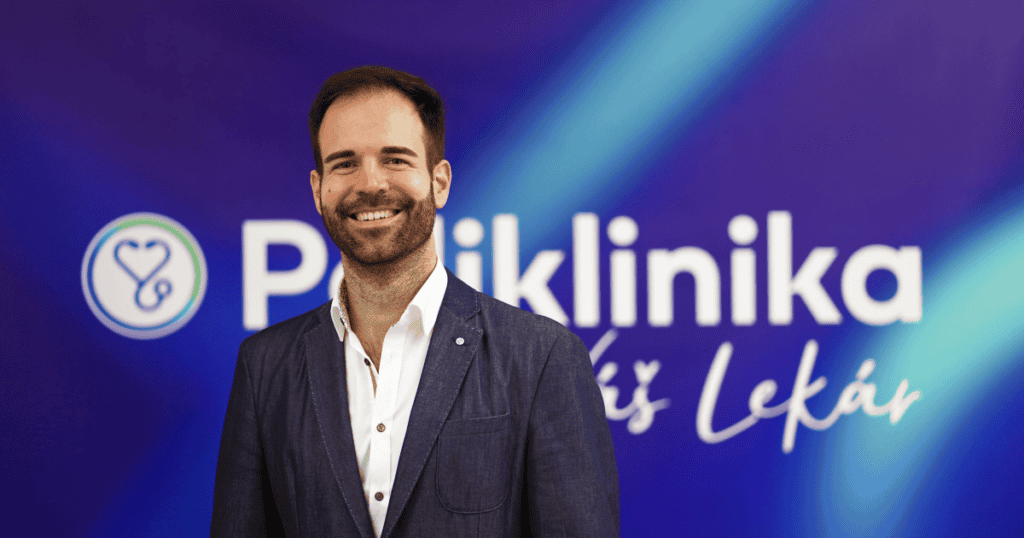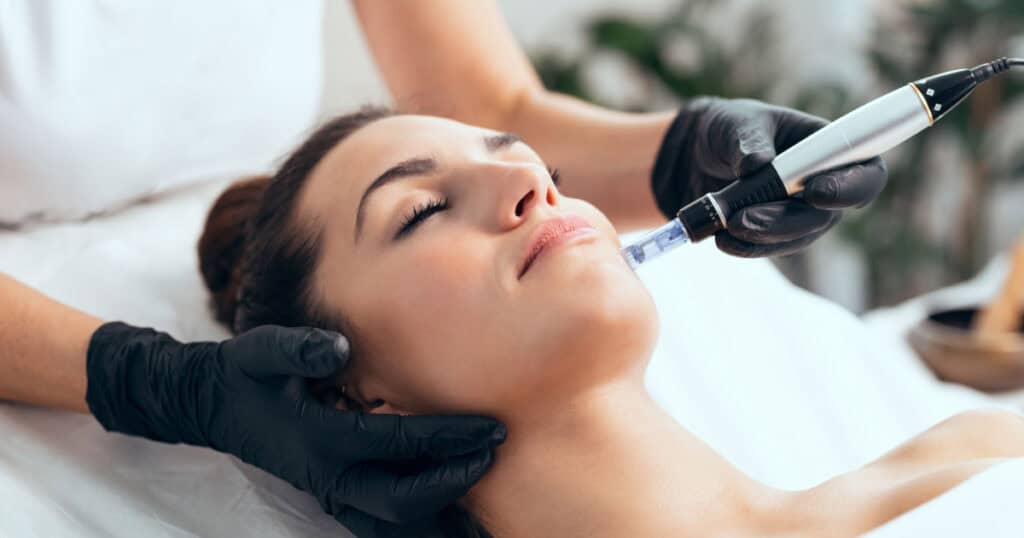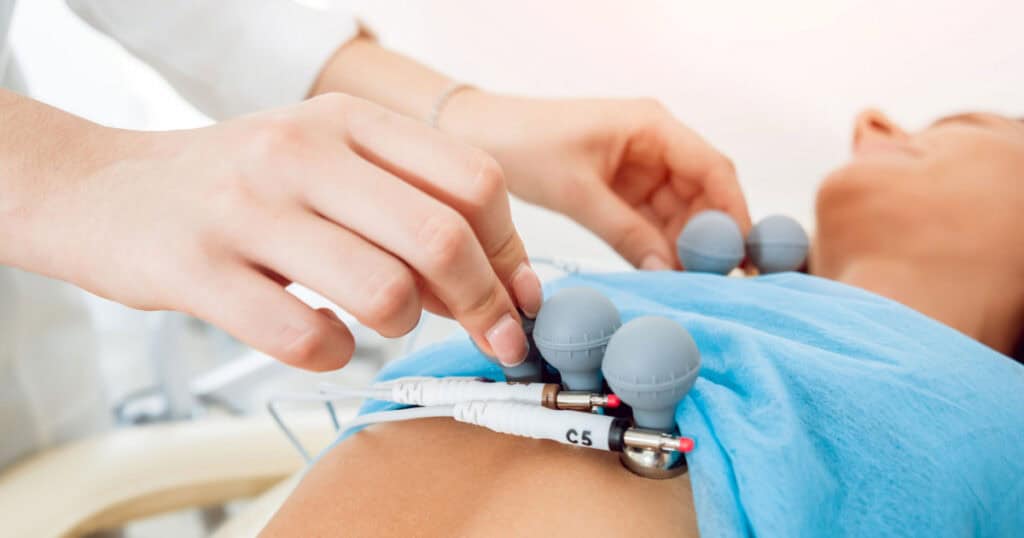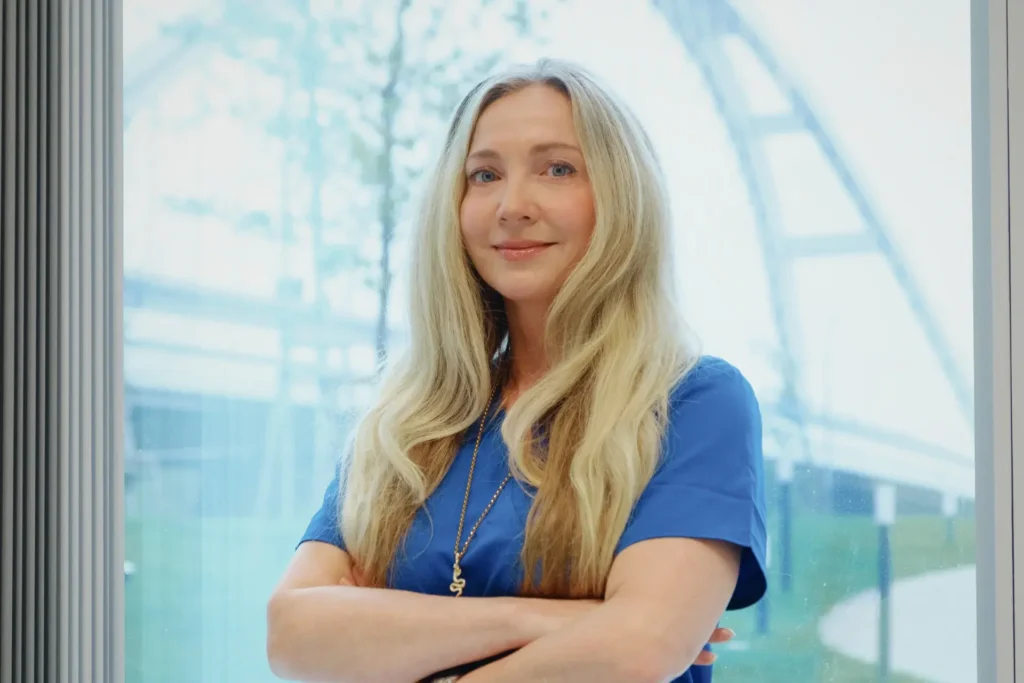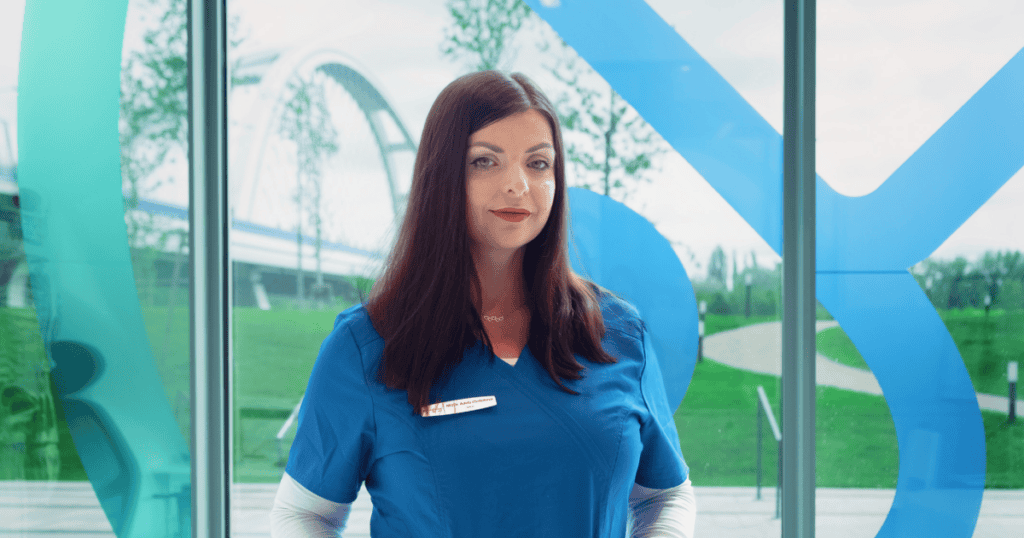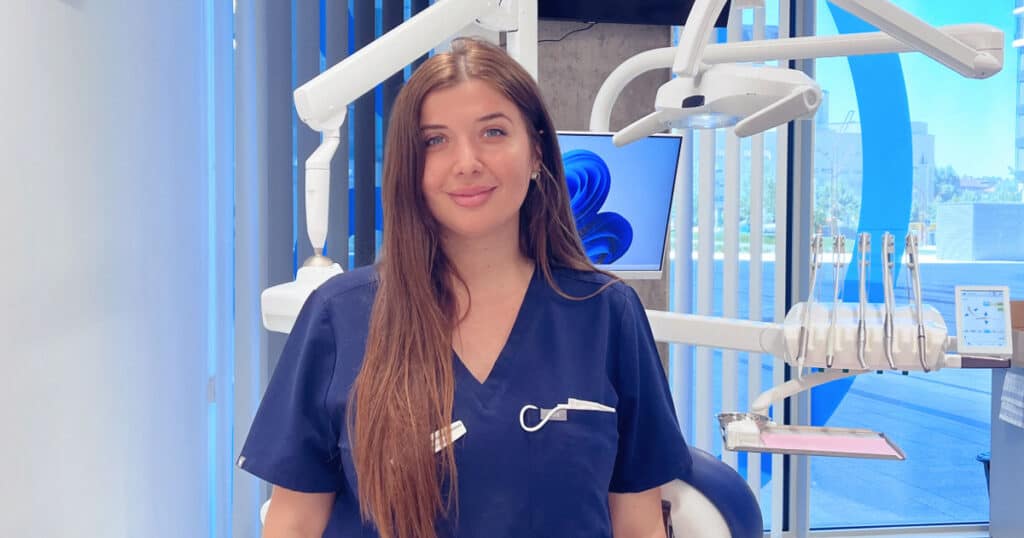After graduating from the Faculty of Medicine at the Pavol Jozef Šafárik University in Košice, she joined the Department of Anaesthesiology and Intensive Care Medicine with Emergency Services as an emergency physician. During her specialisation studies, she practised at gynaecological and obstetric wards in hospitals in Nové Zámky and Komárno. She successfully completed her attestation studies at the Faculty of Medicine of the Slovak University of Health Sciences in Bratislava.
Why did you decide to join the team of Váš LekárPolyclinic?
I like the concept of a medical facility that emphasizes prevention. According to statistics, only about 30% of women undergo a preventive gynaecological examination. If my work can help to increase that number, then it all makes sense to me.
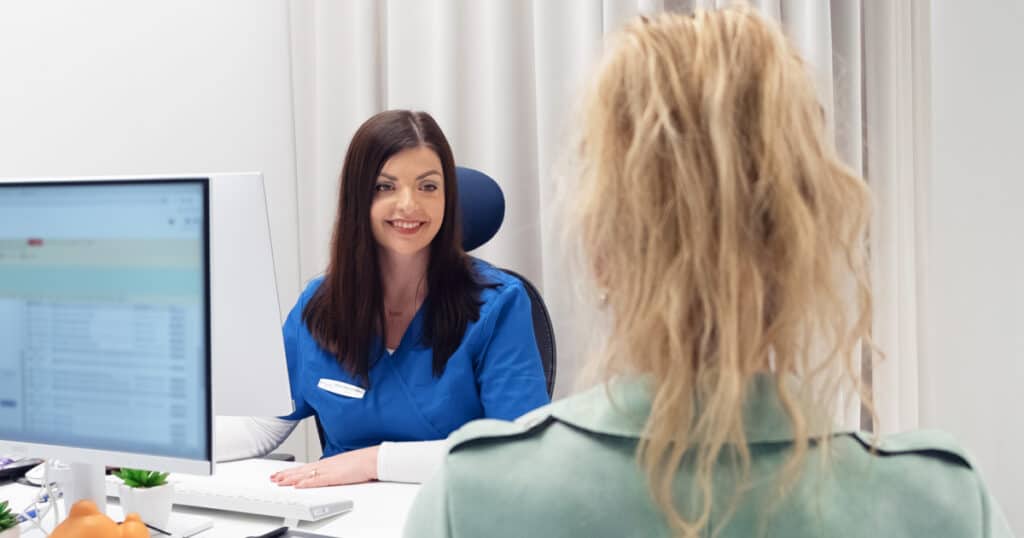
When is it time for a woman to have her first preventive checkup with a gynecologist?
As a standard, women should come for a preventive check-up after they turn 18. year of life. However, if they are sexually active at a younger age or have problems that need to be addressed, they can come earlier, for example, to the Váš Lekár Polyclinic from the age of 15. year of life.
In your opinion, do Slovak women perceive gynaecological prevention positively, as something that can help them, or do you encounter more fear and shyness?
The low participation in preventive examinations from my point of view may also be related to the intimacy of the examination, fear and shyness. In the category of women over 50. year of life, this figure is even lower. I also often encounter the opinion that if a woman does not experience any difficulties, she does not come for a preventive examination because she thinks that she does not need it. Often, however, the pain may already indicate a more serious problem, the pathological processes may proceed very slowly and the earlier they are detected, the easier their subsequent treatment may be. We can save the lives of many patients by detecting a health problem early.
Women should see their gynaecologist once a year for a preventive check-up. Why do you think this is important?
This is particularly important for catching the early stages of serious diseases, especially cervical and breast cancer. The gynaecological preventive check-up includes examinations that can detect these oncological diseases early. For example, in the context of breast cancer prevention, a gynaecological preventive check-up consists of a breast and armpit examination, followed by a referral for sonography or mammography of the breasts every two years, depending on the age of the client.
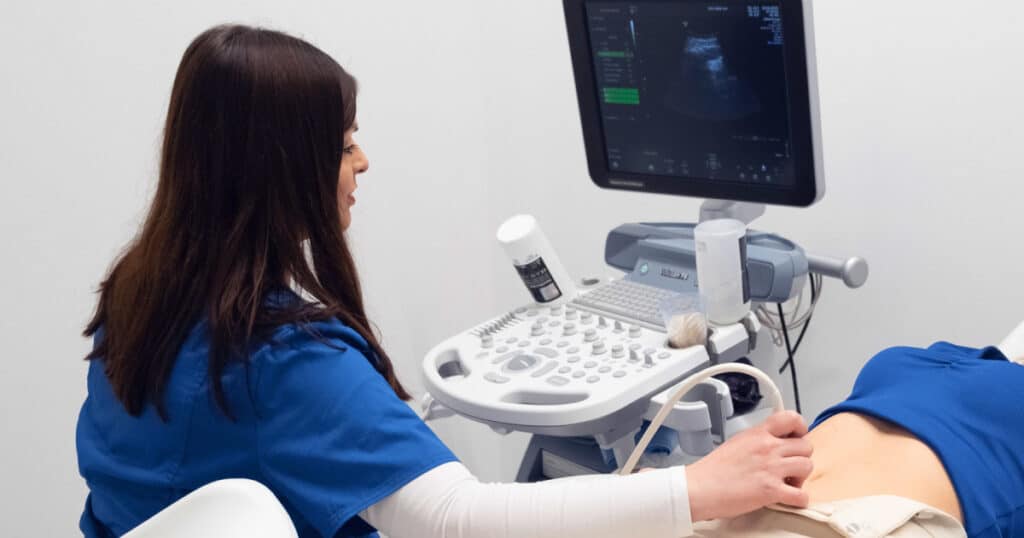
Breast self-examination is often mentioned in the context of female prevention. How is it done correctly and why is it important?
Breast self-examination is an examination that a woman should perform once a month in her home environment, ideally after the end of her menstrual period. Postmenopausal women can choose, for example, the first day of the month. Self-examination consists of systematic palpation and observation of the breasts. Women are advised not to worry and to pay attention to their body and to contact their doctor if they notice any changes compared to their previous condition.
What about women who have a family history of female cancers? Are they being monitored more strictly or more frequently?
If you have a positive family history, you should definitely be careful, because there are also forms of gene mutations that are hereditary. Carrying the mutation alone does not mean that a woman must have the disease, but that she is predisposed to it. Carriers of BRCA 1 and BRCA 2 gene mutations, which are associated with a higher risk of cancer, have been closely monitored at the cancer centre since about 20. year of life, this also includes more frequent gynecological examinations.
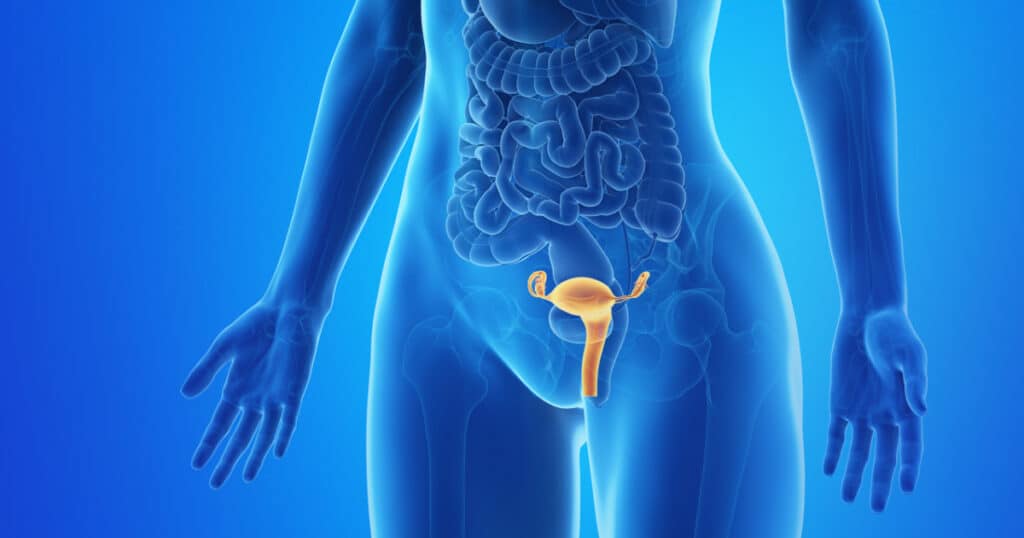
What should patients expect in your outpatient clinic?
Modernly equipped ambulance in the premises of the new polyclinic, professional but also empathetic and
friendly approach to each client. At Váš Lekár Polyclinic we place great emphasis on prevention, diagnosis, treatment and monitoring of gynaecological and obstetric conditions. We are there for women at every stage of their lives and can provide support and solutions to issues across the whole female reproductive and sexual spectrum. Patients can contact us with any gynaecological problem they need to solve.
Make an appointment to see a specialist
How is the preventive examination carried out?
Preventive examination in our clinic begins with an interview, patients are also asked about the occurrence of gynaecological or female cancers in the family. This is followed by an examination in vaginal mirrors, colposcopy – examination of the cervix, in the age group of 23 to 64 years we also perform examinations to exclude cervical cancer by taking a cytological smear from the cervix and a palpation gynaecological examination. Last but not least, we perform an ultrasound of the pelvis to assess the condition of the uterus and ovaries. This is followed by an orientation palpation examination of the breasts and armpits. Depending on the age, the patient is also referred for sonography or mammography of the breasts. We send women from 40 years of age and older for breast mammography. year, the patient can also undergo an ultrasound examination of the breasts – sonography – directly at our clinic.
Is there anything you would like to convey to your potential clients?
I would like to urge all women to think about their health and not to be afraid of prevention. With us they will meet with understanding, professional and human approach.
